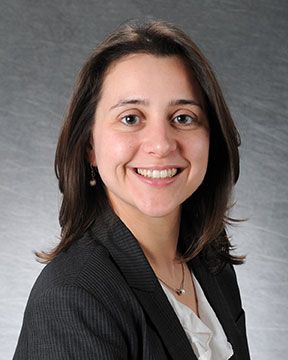
WASHINGTON (June 4, 2014) — In order to meet new cancer program accreditation standards, institutions have placed new focus on patient navigation, psychosocial distress screening, and survivorship care plans. Recently published research by the George Washington University (GW) Cancer Institute found these new programs are experiencing “growing pains.” The results of a nationwide survey conducted by the GW Cancer Institute and reviewed in the Journal of Oncology Navigation and Survivorship, found that health care professionals could most benefit from greater evaluation of their program’s impact.
"This national study from GW Cancer Institute's Center for the Advancement of Cancer Survivorship, Navigation and Policy provides insights into current approaches and barriers for patient-centered care in practice," said Mandi Pratt-Chapman, M.A., director of the GW Cancer Institute. "These findings will help us focus our collective efforts to address identified gaps such as navigation role delineation and how to measure value of these programs."
The survey, completed by 100 healthcare providers—many of them patient navigators and nurses—found that nearly half of respondents had both a navigation and survivorship program at their institution. Full-time navigators had an average patient load of 100-400 patients, in various phases of the cancer continuum of screening, diagnosis, treatment, and posttreatment. Respondents identified a wide range of measurements and tracking tools, with a heavy reliance on low-tech options. The greatest challenge area identified was a lack of funding. While demonstrating value was seen as a way to sustain navigation programs, nearly 60 percent of respondents were not tracking value at all. Additionally, role clarity was cited as an important challenge.
The research found that patient navigators assisting patients during screening may be able to navigate a significantly greater number of patients annually than navigators assisting patients after diagnosis; and navigators supporting patients in treatment may need a smaller caseload than navigators supporting patients in other points of the continuum. The results also indicated a need to identify financially sustainable models for patient navigation and clinical survivorship programs, as well as a consensus on core measures.
“Our results provide critical insight into implementation practices as it relates to navigation and survivorship programs from institutions around the country,” said Anne Willis, M.A., director of the division of cancer survivorship at the GW Cancer Institute. “These findings will help health care professionals who are working to create and improve programs, where little guidance is available.”


